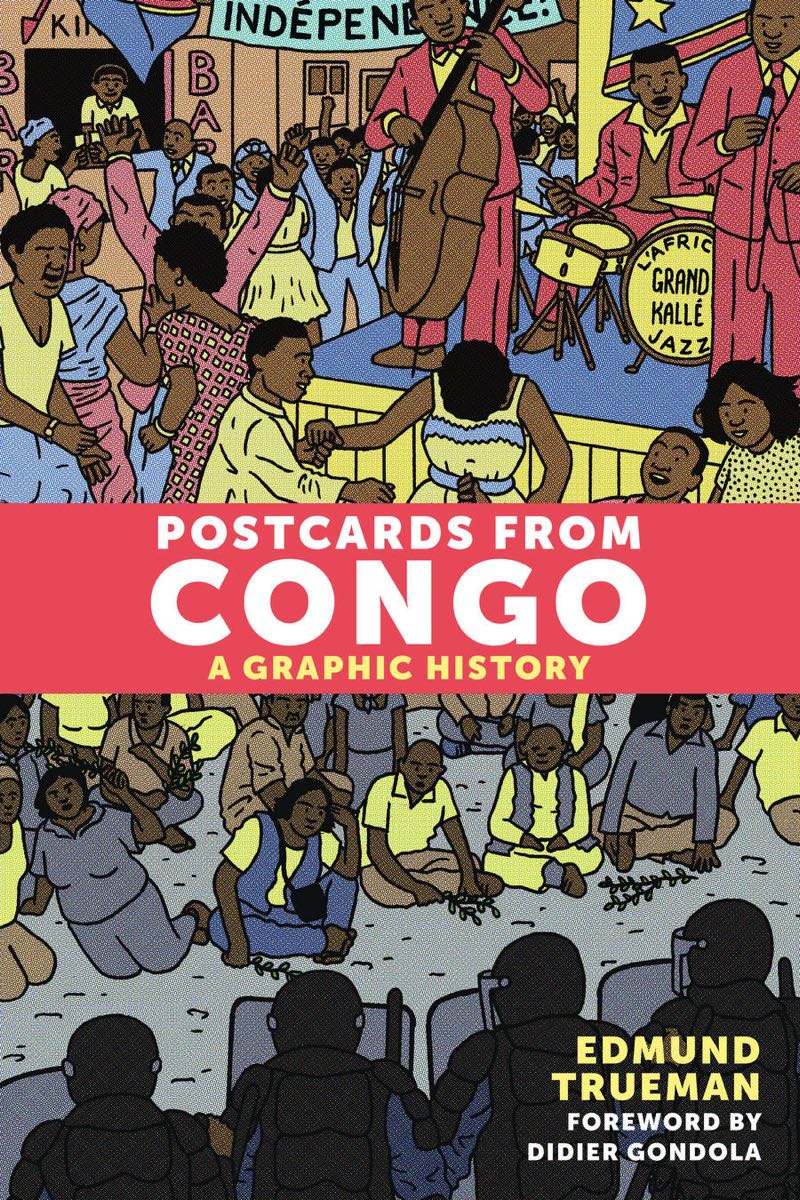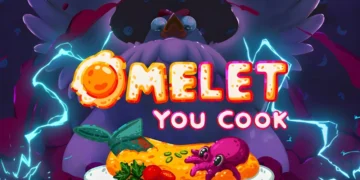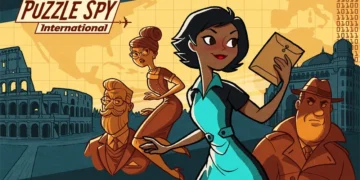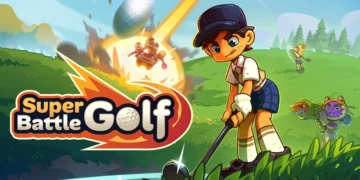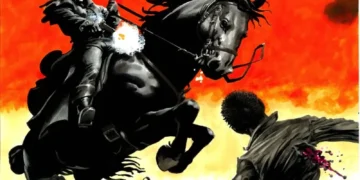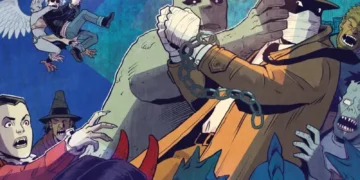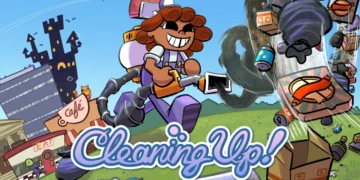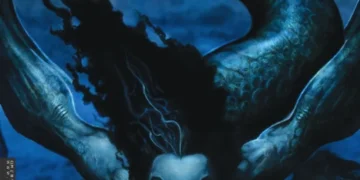With the release of graphic history Postcards From Congo from Arsenal Pulp Press, we are delighted to be joined by the author and illustrator Edmund Trueman.
Hi Edmund, it’s so wonderful to have you here with us.
Thanks for having me!
Could you please tell us a bit about yourself?
I’m 30 years old and I’m from the UK. Nowadays I move around a fair bit but I spend most my time in Catalonia and the south of France. I love drawing comics and illustrations, and in the past few years I’ve especially been focused on stories with social or political themes. If anyone wants to see more from me then you can find me on Instagram @junk_comix
Can you tell us about the origins of Postcards From Congo?
I was speaking with a couple of friends from different parts of Africa and I realised how little I knew about the events they’d lived through, and in many cases escaped from. I realised that I wasn’t alone, and actually very few people around me had more than a dim understanding of what life is like in the African continent. I started to read, and I got really hooked on the story of Congo – it is in equal parts tragic and inspiring. The pandemic arrived and I realised that I wasn’t going to be leaving the house any time soon, so I decided to try and make a book to help others get interested in the topic!
What was your aim with Postcards From Congo?
To create a book which could be both a beginner’s introduction to Congolese history, but also full of pretty illustrations which give the story a new angle for those who are already familiar. It’s pretty overwhelming to get started on such a broad topic, so I tried to make something which is attractive and easy to read. And otherwise, I aim to get people to start thinking a little more about Africa and what’s going on there.
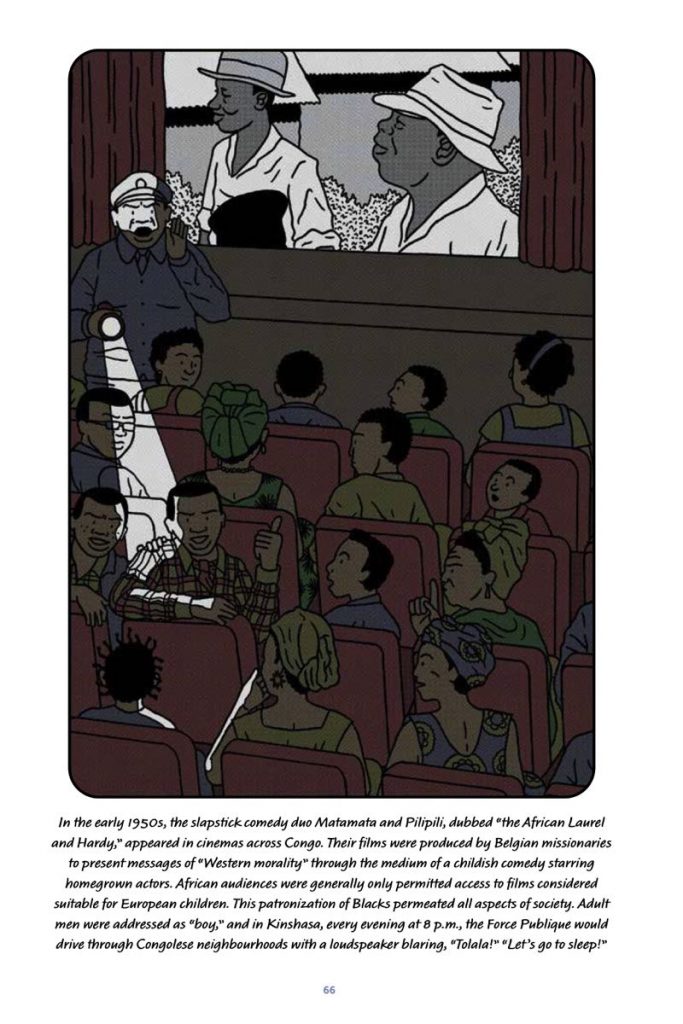
How important is word of mouth for any indie project?
Word of mouth is the most important for any project! Major publishers can fork out more cash for placing ads all over the place, but its still us, the people, who spread the word – and we do it for free!
How would you describe Postcards From Congo?
We can call it an illustrated encyclopedia of Congolese history. You’ve got all the main events in there, as well as a lot of stuff about the everyday experiences of regular people. And also a lot of stuff about cultural development – arts and music and so on.
How long have you been working on Postcards From Congo?
About two years of reading around and getting myself familiar with the topic, and then one more year of drawing and fine tuning.
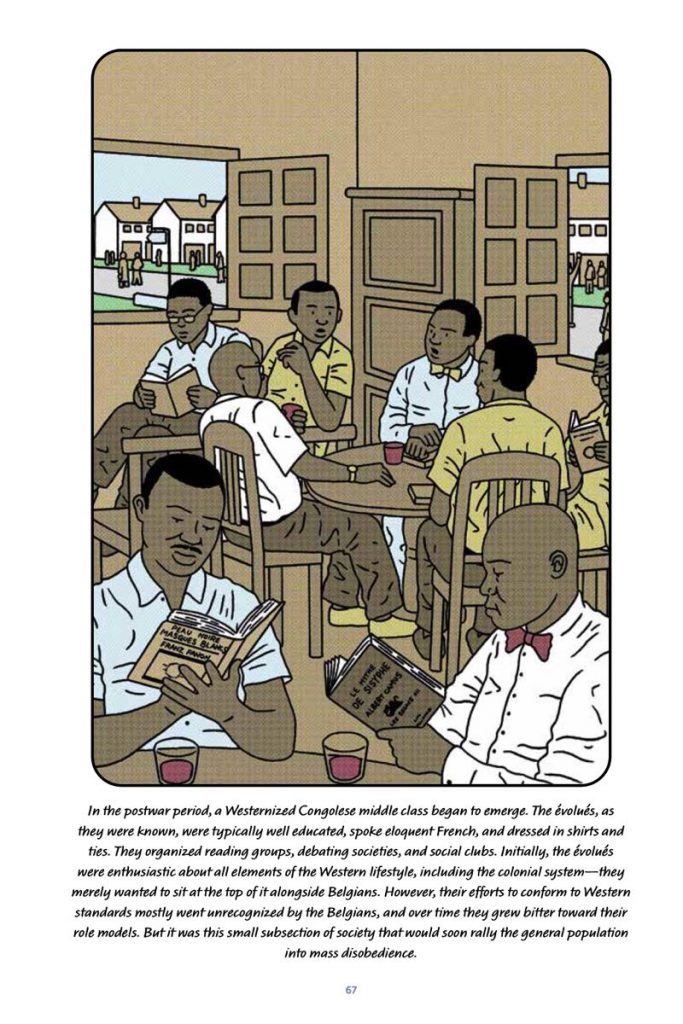
How did Didier Gondola get involved with Postcards From Congo?
Realistically speaking I’m not really qualified to write this book alone – I’m neither Congolese nor a historian. I wanted to get the support of someone who knew far more than me about the topic, and who could contribute a Congolese voice to part of the project. I absolutely loved Didier’s book Tropical Cowboys, so I decided to reach out to him. Didier is a pretty big deal and I’m pretty unknown, so I didn’t have much hope for a response when I wrote to him out of the blue. In fact he loved the idea of the project and agreed to take part – I was absolutely flattered. Hewrote an incredible preface, as well as checking my work for accuracy.
Has it been a challenge working on Postcards From Congo?
It was an intellectual challenge to learn as much as possible about the topic, and then condense it into as few pages as possible. I wanted the book to be concise and easy to read, so I had to cut out a lot of good stuff out to keep it brief. And it was a physical challenge because I tend to hold my pen in such a death grip that after a while I start losing circulation in my hand.
How did Arsenal Pulp Press get involved with Postcards From Congo?
I found Arsenal Pulp Press through the excellent work of Gord Hill – in particular 500 Years of Resistance, which was a big influence on me with Postcards From Congo. From the beginning Arsenal Pulp Press shared my opinion that now is a great time for people around the world to start taking African societies more seriously. Obviously, one way of doing that is to promote the education of African history.
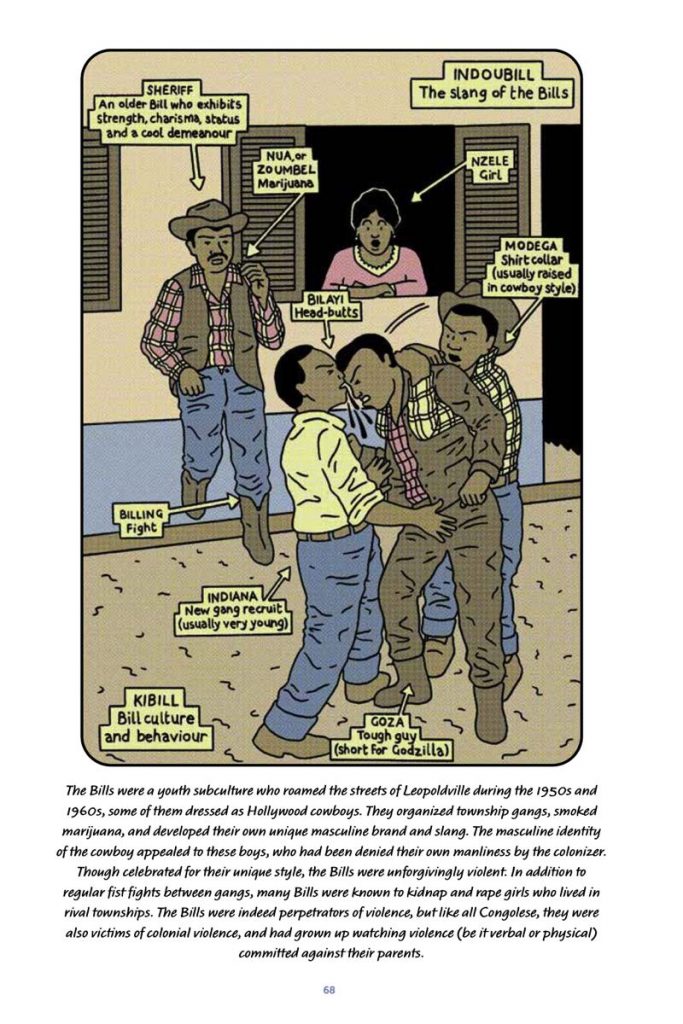
Any message for the ComicBuzz readers?
Just a big thanks for continuing to buy comics and support the comics industry. Now is a really interesting time in the English-language comics scene – things are really opening up in terms of the variety of topics and genres which people are writing within. Comics are really starting to realize their true potential as an art form, so I’m glad that we’re all here now to enjoy this moment.
A big thank you to Edmund for sitting and chatting with us. We would like to wish him the best of luck with Postcards From Congo.

